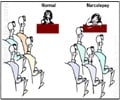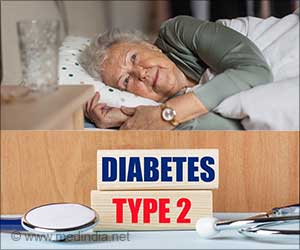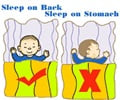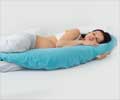Treatment
Menstruation, Pregnancy and Menopause are all physiologic phases in a womens life. Changes related to these phases are best dealt with Behavioral Strategies and Good Sleep Hygiene Measures. However Hormone Replacement Therapy (HRT) has been found to help relieve menopausal symptoms.
Sleep promoting measures can vary and are categorized according to:
- Menstruation
- Pregnancy
- Menopause
A. Treatment of Menstruation Related Sleep Disturbances
The Sleep changes in menstruation are cyclical and are dependent on hormonal fluctuations. The first step is to ensure good sleep hygiene is practiced. Careful attention to good sleep hygiene can help tide over the minimal fluctuations in sleep dysfunction.
Treating Premenstrual Syndrome (PMS):
The Premenstrual Syndrome (PMS) can be successfully managed with lifestyle changes and medications.
1. Lifestyle Changes
Recommended lifestyle changes include:
- Regular exercise - at least three times per week and also in the premenstrual period.
- Avoiding nicotine, caffeine and alcohol, two weeks before menstruation.
- Ensuring sufficient daily sleep.
- Eating smaller meals more often – for example, having six ‘mini-meals’ instead of three main meals.
- Reducing intake of salty foods.
- Including more fresh fruits and vegetables and wholegrain foods in daily diet.
- Supplements of calcium, magnesium and vitamin E have been shown to reduce the symptoms of PMS.
- Relaxation techniques like meditation can help promote sleep.
2. Medications
If the premenstrual symptoms are disabling and are not responding to lifestyle changes, than the medications used are:
a. Oral Contraceptives
b. Non-Steroidal Anti-Inflammatory Drugs (NSAIDs)
c. Antidepressants
Lifestyle changes are advocated to treat sleep disturbances in pregnancy as medications can have adverse effects on the fetus.
a. Sleep Promoting Measures For The First Trimester
- Always prioritize sleep
- Include daytime naps as necessary. Sleep wherever possible so that sleep needs is fulfilled
- Sleep on left side to improve the flow of blood and nutrients to the fetus.
- Put a nightlight in the bathroom instead of turning on the light to use the bathroom — this will be less arousing and help in returning to sleep more quickly.
b. Sleep Promoting Measures For The Second Trimester
- 2nd trimester is the phase of least symptoms and better sleep. So try to sleep at least for 8 hrs.
- If the sleep positioning is uncomfortable try to sleep on side with the knees and hips bent.
- Place pillows between the knees, under the abdomen and behind the back. This may take pressure off the lower back.
- Do not eat large amounts of spicy, acidic or fried foods. Eat frequent small meals throughout the day to avoid heartburn. Also, sleep with head elevated on pillows.
- If nightmares are disturbing sleep it would be better to talk to a therapist or counselor.
c. Sleep Promoting Measures For The Third Trimester
- If leg cramps are troublesome, straighten the legs and flex the foot upwards. Do this several times before going to bed. Avoid carbonated sodas and drinks.
- Sleeping in the left lateral position improves the blood circulation to the fetus, so try to sleep on the left side. Avoid lying on the back for extended periods of time.
- Try using a special "pregnancy" pillow to help sleep better.
- Heavy snoring can be an indication of obstructive sleep apnea. Ensure to have the blood pressure and urine protein checked.
- Supplement iron if Restless Legs Syndrome is interrupting sleep.
- Avoid sleep if not drowsy enough. It is better to be engaged in some quiet activity until sleepy.
- Exercise regularly as this helps to stay healthy, improve circulation, and reduces leg cramps.
Lifestyle Changes and Hormone Replacement Therapy (HRT) help promote sleep during menopause
1. Lifestyle Changes
- Eat frequent small healthy meals. Avoid large meals, especially before bedtime as this triggers heartburn.
- Foods that are spicy or acidic may trigger hot flashes. Soya rich foods are known to minimize hot flashes.
- Avoid nicotine, caffeine and alcohol, especially before bedtime.
- To minimize the effect of hot flashes dress in lightweight clothes and ensure to sleep in a cool environment.
- Exercise regularly to maintain a normal weight.
- Try relaxation techniques to reduce stress and worry, as they can hinder sleep.
2. Hormone Replacement Therapy (HRT)
Science defines menopause as a "problem" resulting from lack of estrogen. However, for the majority of women, good menopausal health is not as simple as replacing lost estrogen. Indeed some women cannot, or choose not, to take hormone replacement therapy (HRT).
Advantages of HRT
Hormone Replacement Therapy (HRT) may relieve hot flashes and other menopausal symptoms and so may improve sleep. It is said to be protective against osteoporosis, heart disease and stroke.
Disadvantages of HRT
Estrogen supplementation is not advisable for women who are at high risk for breast or uterine cancer, fibroid tumors, liver or gall bladder disease, or depression. There is an increase in the incidence endometrial cancer in those receiving HRT.




















